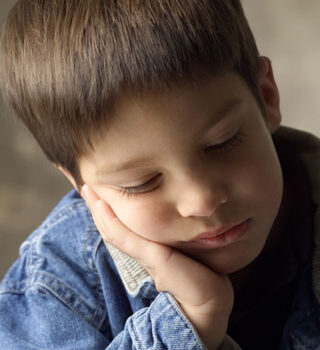
Most of us tend to put off doing things that are unpleasant or that we’re nervous about doing. As a result, you may come up with countless reasons not to tell your children about your divorce. However, make sure that you tell them before anyone else does. They need to hear the news from you in your own words. And, in the same breath, you need to reassure them that you will always love them and take care of them.
The right time to talk with your children about the changes to come depends on their ages and on the circumstances of your divorce. For example, if your spouse announces that he or she has already filed for divorce and is moving out next week, you should tell your children about the split sooner, not later.
Finding the Right Time & How To Tell Your Children About Divorce
Letting Your Older Kids Know Sooner
Bear in mind that you usually need to tell pre-teens and teens sooner than very young children (assuming that you have some control over the timing of your conversations with your children), because they’re more likely to learn about your divorce plans by overhearing a conversation or by coming across divorce-related papers. Also, they’re better at sensing that something’s up. Therefore, when you’re certain that you will be divorcing and have worked out at least some of the details, especially those that affect your children, have a talk with your preteens and teens as soon as possible.
Be sure to tell your older children not to share your news with their younger siblings if there’s a significant age gap between them. For example, say your teenage children have two younger siblings, ages 5 and 7. Explain to your older kids that you want to tell the younger siblings yourself in your own way. But be sure to let your older kids know when you’ve had that conversation so that they can talk with their younger brothers or sisters about your divorce and be a support to them.
Warning: Don’t discuss your divorce plans with your older children until you’ve talked the plans over with your spouse. Making your kids your divorce confidantes and seeking their advice and counsel is unfair and is an inappropriate and unhealthy role for your children to play. If you need advice and counsel, talk to a trusted friend or family member, your religious advisor, or a mental health professional.
Waiting to Share the News With Your Younger Ones
If you have toddlers and elementary-age children, avoid telling them about your divorce plans too far ahead of the date that you and your spouse plan to begin living apart. Young children tend to have a different sense of time than adults and older children have. For them, a week can seem like a month, and a month can seem like a year. If you tell your younger children prematurely, you risk intensifying the anxiety they have over knowing that their lives are going to change in ways they don’t yet understand.
Regardless of their ages, whenever possible, don’t wait until just before you and your spouse begin living apart to break the news to your children. Instead, tell them far enough ahead of the day you plan to separate so that they have time to process your news, ask you questions, spend time with both of you in a relaxed manner, and enjoy your affection. All those things are essential preparation for the changes ahead. A week before the separation begins is probably about the right amount of time for younger children.
Deciding Whether to Tell Your Children Individually or All Together
If your children are close in age and maturity, telling them all together has important benefits:
- It can help foster a “we’re all in this together” attitude among your children. That feeling can be a comfort and a source of strength to them.
- If all your children find out about your divorce at the same time, each of them knows exactly what his or her siblings know. This may not seem important to you but, if you tell each of your kids separately, they may worry that they don’t know what their siblings know or that you’re going to treat them differently than everyone else in the family.
If your children have significant disparities in their ages, maturity levels, or emotional needs, talk to your children individually about your divorce so you can tailor an appropriate message for each child and provide him or her with as much support and comfort as he or she may need after hearing your news.
If you meet with your children separately, tell each child that you’re having a similar conversation with his or her siblings. Unless your children are very young, they’re probably going to talk with one another about what you’ve told them. Therefore, your message about why you’re getting a divorce and what is going to change or stay the same in their lives should be consistent, though you may decide to use different words to convey it. If you tell each child something different, you only add to their anxiety and confusion.
 John Ventura is a bestselling author, attorney, and a national authority on consumer financial and legal problems. Mary Reed is the founder of Mary Reed Public Relations. This answer has been excerpted from their book Divorce for Dummies (Second Edition, Wiley Publishing, @ 2005). This material is used by permission of John Wiley & Sons, Inc. The book is available at Amazon.com or www.wiley.com.
John Ventura is a bestselling author, attorney, and a national authority on consumer financial and legal problems. Mary Reed is the founder of Mary Reed Public Relations. This answer has been excerpted from their book Divorce for Dummies (Second Edition, Wiley Publishing, @ 2005). This material is used by permission of John Wiley & Sons, Inc. The book is available at Amazon.com or www.wiley.com.











Add A Comment